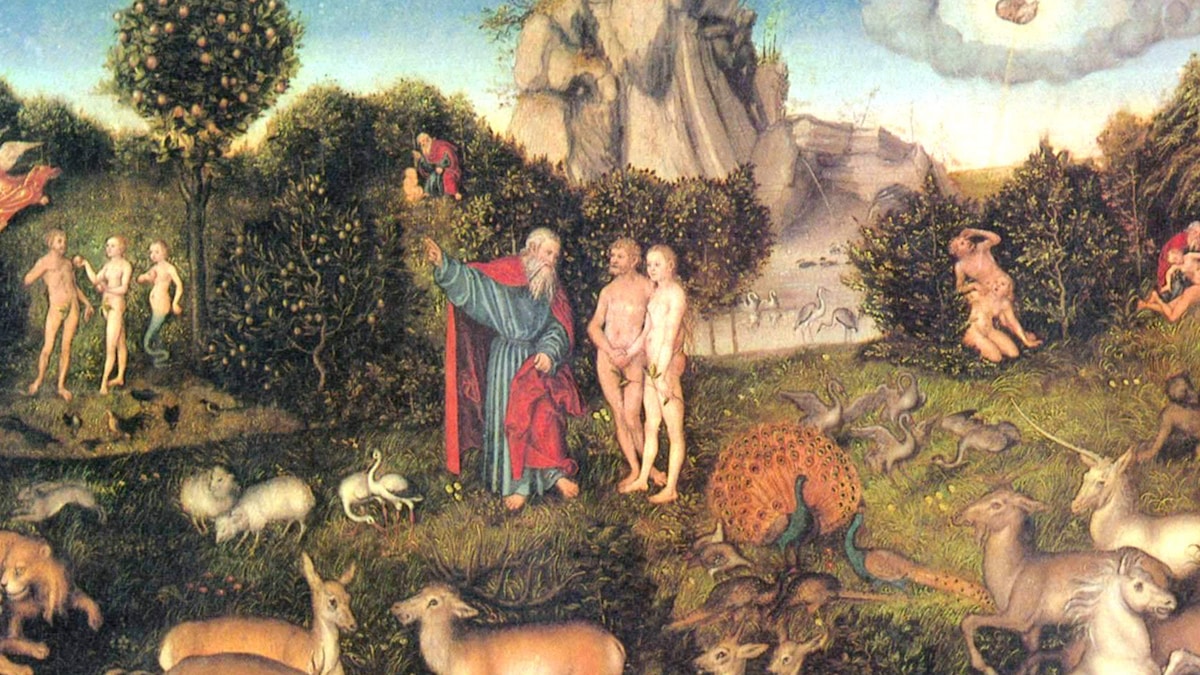A married couple, Ardith and Jerry, had many problems in their marriage, but were trying to work things out after being separated for over a year. During the separation Ardith had met a man named Bob, who lived in a city four hours away, and she remained deeply attracted to him, even after returning to Jerry. One night she had an argument with her husband, and in anger stormed out of the house, deciding to go to Bob. However, on the expressway a few hours later, Ardith had second thoughts—for she had promised Jerry she wouldn’t see Bob anymore, and if she allowed just one argument with her husband to make her break the promise, she wasn’t much of a wife. Ardith turned her car around, and decided that if she drove straight through, she could be home before Jerry left for work in the morning. About 5:30am, with an hour’s driving time left, she noticed there were no other cars near her, just a cluster about a quarter mile back. So she took the opportunity to open her seat belt and stretch her back—but at that moment she hit a puddle of spilled diesel fuel, invisible in the dark, and her car went into a wild spin at over sixty miles an hour. Ardith knew she didn’t have the safety of a seat belt, and soon the cars behind would catch up and possibly crash into her. She pictured herself dead, with her husband never knowing she had decided to come back to him.
Ardith later said, “Long ago I had walked away from Jesus. But I always knew He loved me anyway. Now, I took my hands off the steering wheel and said, ‘God, You’re in control.’” Ardith shut her eyes and braced for the impact—but nothing happened. Her car had come to a gentle stop at the side of the road, though it was still in gear, and when she looked to see where the other cars were, they were still a quarter mile back, and were no danger to her. Ardith shakily shut off her car, got out and knelt on the grass, and cried, “Thank You, God, thank You!” over and over. Right there she recommitted herself to Jesus and asked Him to restore her marriage, and He did; over the next few years she and Jerry had two children, and developed a wonderful relationship built on faith (Where Miracles Happen, Joan Wester Anderson, pp. 56-57). Just as with marriage, so it is with life: our efforts to remain faithful to our calling allow God to bless us and protect us.
Jesus came to earth with a mission from His Heavenly Father, and as the Letter to the Hebrews (2:9-11) reminds us, He obediently fulfilled it, dying so that all people might have the chance to be saved. Everyone has a mission from God, and for most people, marriage is an important part of this calling. The Book of Genesis (2:18-24) teaches us that marriage is a sacred institution because it was directly established by God, and in the Gospel of Mark (10:2-16) Jesus develops this idea by stating that no one has the right to separate those whom God has joined together. This doesn’t mean marriage is always easy or pleasant; it does mean that husbands and wives who honestly strive to remain faithful to each other please God and can expect a place of honor in His Kingdom.
Many people in society today—quite a few Catholics included—consider the Church’s teachings on sex and relationships hopelessly outdated and unnecessarily harsh. The Catholic Church does not recognize divorce, does not allow divorced persons to remarry without an annulment, and declares adultery or infidelity in marriage to be a grave sin. The Church also labels as seriously sinful fornication, or sex outside of marriage, along with contraception, abortion, the use of pornography, homosexual activity, and couples living together without marriage (assuming sex is part of that relationship). These are not rules invented by the Church, but divinely-revealed truths expressing the Will of God. Most other Christian religions have watered down their teachings over the centuries, but the Catholic Church stands firm, for she is more concerned with remaining true to the words of Christ than with being popular or relevant in the eyes of the world. Like Jesus, the Church is very strict, but also very merciful. Divorced and remarried Catholics are welcome at Mass, and if they undergo the annulment process, they are able to receive Holy Communion. Moreover, every sin—sexual or otherwise—can be forgiven; any Catholic can, at any time, be restored to grace through the Sacrament of Reconciliation; all that’s required is the honesty, humility, and desire to make a good confession.
Marriage, and the sexual intimacy involved in it, isn’t just something God allows; He actively intends it, and calls most people to experience it. The Church teaches that marriage has two ends, or purposes: the procreation of children, and the mutual sanctification of the spouses. In other words, most husbands and wives are called to be co-creators with God of new human life, and are supposed to help and encourage one another, and their children, to grow in holiness so as to be ready one day to enter the Kingdom of Heaven. Marriage and family life are meant to be holy and wonderful, but are certainly not problem-free. It’s not always easy to be married; it’s not always easy to be parents; it’s not always easy to be single or unmarried; it’s not always to be a priest; it’s not always easy to be a deacon or a religious sister or brother. Because of original sin, life can be painful and hard; because of Christ’s gift of salvation, everything we experience, whether easy or difficult, whether joyful or sorrowful, can be an occasion of grace and an opportunity to grow closer to God.
What would have happened if Ardith had not decided to return to her husband Jerry, and had instead been killed while going to see Bob? There’s no way of knowing, but it’s entirely possible she would died in a state of serious or mortal sin, and thus would have been lost forever. Such a terrible fate of eternal damnation in hell is never God’s Will for anyone, but many people in today’s world are risking it by embracing immorality and by rejecting the Lord’s plan for their lives. Jesus begs us not to make this potentially tragic and eternal mistake; through His Church, He urges us to remain true to our vocation, whatever it may be, so that He can bless us, help us, and one day reward us. The Lord never asks the impossible of us; if He gives us a certain mission or calling in life, He will also give us the grace and strength needed to fulfill it, and to find spiritual freedom and peace in doing so. Just as Ardith finally surrendered to God by letting go of the steering wheel, so we are called to place our lives entirely in the Lord’s hands—and the more we are willing to do this, the more we will experience a peace and joy this world cannot give.








